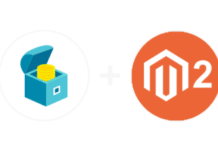Last Updated on September 28, 2023 by
In the rapidly evolving world of freight forwarding, embracing digital transformation is no longer a luxury but a necessity. As the industry faces increasing demands for efficiency, transparency, and streamlined operations, cloud technology emerges as a game-changer. This article explores the crucial role of cloud technology, specifically Software as a Service (SaaS) solutions, in revolutionizing the freight forwarding sector. We delve into the benefits and opportunities that cloud-based systems offer, highlighting their scalability, flexibility, and cost-effectiveness compared to traditional approaches.
Table of Contents
The Current Challenges in Freight Forwarding
The freight forwarding industry faces several challenges due to outdated legacy systems and their limitations, including fragmented data management and a lack of real-time visibility. These shortcomings lead to inefficiencies in communication and collaboration among stakeholders, hindering the industry’s ability to meet rising customer expectations for transparency and responsiveness. In order to address these issues and stay competitive in the evolving landscape, freight forwarding software solutions need to embrace cloud technology.
By leveraging cloud-based systems, businesses can overcome the limitations of legacy systems, streamline data management, enhance real-time visibility, improve communication and collaboration, and meet customer expectations for transparency and responsiveness.
Understanding Cloud Technology and SaaS Solutions
Cloud technology is a paradigm that revolutionizes the way businesses operate by leveraging virtualized computing resources over the internet. It offers several defining characteristics, including on-demand self-service, broad network access, resource pooling, rapid elasticity, and measured service. Within the cloud ecosystem, Software as a Service (SaaS) like Logitude’s freight forwarding software solutions plays a vital role, providing software applications and services that are accessed and utilized over the internet.
Unlike traditional infrastructure, cloud-based systems offer numerous advantages, including scalability to handle varying workloads, flexibility to adapt to changing business needs, cost-effectiveness by eliminating the need for extensive hardware investments, simplified maintenance and updates, and improved accessibility and collaboration due to ubiquitous access across devices and locations. These key advantages make cloud-based freight forwarding systems an essential component of modern technology strategies.
Scalability: Meeting Growing Demands
Leveraging cloud technology allows businesses to efficiently scale their operations as they grow. Unlike traditional infrastructure, which requires significant hardware investments and time-consuming upgrades, cloud-based freight software solutions provide the flexibility to easily upscale resources to meet increasing transaction volumes. With the ability to dynamically allocate computing power and storage capacity, businesses can handle higher workloads without the need for extensive hardware investments, thereby reducing costs and improving operational efficiency.
Furthermore, cloud technology enables seamless expansion into new markets and geographies. When businesses aim to enter new regions or markets, they often face challenges related to infrastructure setup and management. However, with cloud-based freight forwarder software solutions, these barriers are significantly reduced. The cloud offers a global infrastructure that can be accessed from anywhere with an internet connection, allowing businesses to establish a presence in new locations without the need for physical infrastructure or complex setups. This agility enables faster market entry, accelerates time-to-market, and supports business growth in diverse geographical regions.
In addition to scalability and market expansion, cloud technology provides the added advantage of easy integration with existing systems and processes. Whether it’s integrating with partner networks, customer platforms, or third-party applications, cloud-based systems offer flexible APIs (Application Programming Interfaces) and pre-built connectors that simplify the process. This seamless integration capability facilitates smoother operations, enhances collaboration, and supports efficient workflows across different markets and geographies. By leveraging cloud technology, businesses can overcome traditional barriers to expansion and seize new opportunities for growth.
Flexibility: Adapting to Changing Business Needs
Cloud-based freight solutions offer significant advantages in terms of agility and responsiveness to market dynamics. With the ability to quickly adapt to changing business requirements, cloud systems enable businesses to respond promptly to market shifts, industry trends, and customer demands. The flexibility inherent in cloud technology allows for the rapid scaling of resources, making it easier to meet customer expectations for responsiveness and service quality. Additionally, cloud-based systems facilitate seamless integration with other technologies and platforms.
Enhanced Collaboration and Visibility
Cloud technology plays a pivotal role in facilitating real-time data sharing and collaboration among stakeholders in the freight forwarding industry. By centralizing data on cloud-based platforms, businesses can provide secure and immediate access to relevant information, enabling stakeholders to make informed decisions in real-time. Furthermore, cloud-based systems enhance end-to-end supply chain visibility, enabling customers and partners to track and monitor the progress of shipments, inventory levels, and logistics processes. This increased visibility enhances transparency, reduces delays, and fosters trust throughout the supply chain.
Cloud technology strengthens communication channels, enabling seamless operations by providing a unified platform for stakeholders to exchange information, share updates, and collaborate efficiently. With improved communication and collaboration, businesses can streamline processes, address issues proactively, and deliver superior customer service.
Overcoming Security Concerns
Ensuring the security of cloud-based systems is of paramount importance, and businesses must address common security challenges to safeguard their data. This includes implementing robust measures to protect data, ensuring confidentiality, and maintaining compliance with relevant regulations.
By collaborating with trusted cloud service providers, businesses can mitigate risks and enhance security. These providers offer advanced security features, such as encryption, access controls, and regular audits, to protect data stored in the cloud. Additionally, they stay abreast of evolving security threats and employ proactive measures to counter them. By partnering with reputable cloud service providers, businesses can leverage their expertise and technologies to establish a secure and compliant environment for their cloud-based systems.
Key Considerations for Implementing Cloud Solutions
When embracing cloud technology for freight forwarding, businesses must focus on several key aspects. Firstly, it is crucial to identify the right cloud service provider and solution that aligns with the specific needs of the industry. This entails considering factors such as scalability, security, and industry expertise. Additionally, planning for data migration, integration, and change management is essential to ensure a smooth transition to the cloud. This involves mapping out the process of transferring data, integrating systems, and managing any organizational changes that may arise.
Lastly, navigating regulatory and compliance requirements is critical to ensure adherence to industry-specific regulations and data protection laws, safeguarding sensitive information and maintaining trust with customers and partners.
As the freight forwarding industry becomes increasingly complex and competitive, embracing cloud technology, specifically Software as a Service (SaaS) solutions, is imperative for businesses to thrive. Scalability, flexibility, cost-effectiveness, enhanced collaboration, and visibility are among the key benefits that cloud-based freight forwarding systems offer. By adopting cloud technology, freight forwarders can streamline their operations, meet customer expectations, and position themselves for long-term success in the evolving digital landscape.
Logitude World provides freight forwarders with advanced freight forwarding software to
manage all operations on one digital platform and deliver superior freight services.
Apart from that, if you are interested to know about Leveraging Freight Forwarding Software then visit our Technology category.



























